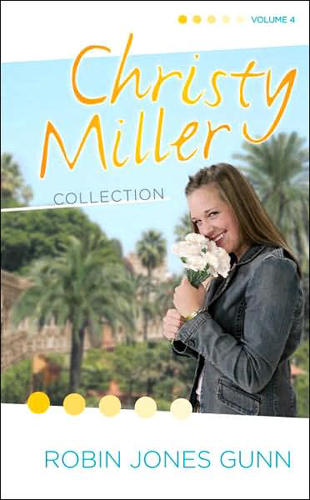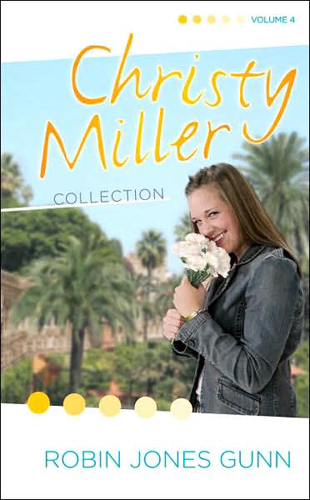Beliefnet’s new blogger is Chris Epting, author of Hello, It’s Me: Dispatches from a Pop Culture Junkie , the story of his love for the television shows, movies, and music of his life and the unexpected encounters with the people behind them. The vignettes about stars from Mick Jagger, Michael Jordan, Milton Berle, Jerry Lewis, Jay Leno, Fred Willard, and many, many more, are funny, touching, and remarkably vivid.
, the story of his love for the television shows, movies, and music of his life and the unexpected encounters with the people behind them. The vignettes about stars from Mick Jagger, Michael Jordan, Milton Berle, Jerry Lewis, Jay Leno, Fred Willard, and many, many more, are funny, touching, and remarkably vivid.
Why are people fascinated with the personal lives of celebrities?
I think there are a variety of reasons but primarily, I believe it’s due to the images that the general public is “sold” about celebrity life. On TV, in magazines–thanks to many publicists–we are fed spectacular stories of what it’s like to live as a celebrity–sort of like our own American version of royalty–and since most of us do not live like that, our curiosities get built up in extreme ways. Vicariously, many people want a peek into the “glitter dome” simply to imagine what it might be like to exist there. On the down side, I think people also get overly fascinated in celebrity downfall–over all, I think all of the interest and fascination simply stems from the innate desire to know the inside details of people we find interesting.
Most people have a hard time getting in touch with celebrities and an even harder time making any kind of connection to them when they do meet because celebrities are understandably reserved. Yet over and over, you seem to have been almost instantly on a friendly basis with people from John Cheever to Borscht Belt comics and sitcom stars. What do you do to earn their trust?
I’m not exactly sure but my hunch is that I’m interested in certain people in ways that appeal to them or put them at ease. With John Cheever, I was very young–didn’t even really know who he was, and I think he liked that. Everyone always fawned over him but I was just a student interested in some guidance. I was also enthusiastic about writing and very respectful of his time and privacy. As I got older, when I met many of the older actors and started working with them, I think the trust was based on the fact that I knew and appreciated much of their work–and that I wanted to help them evolve as actors and comedians based on the enthusiasm I had for them growing up. And again–I was always mindful of their needs and never asked for too much. Lastly, I’d say many of the people I’ve gotten to know are passionate and energetic about life–qualities I try to embrace as much as I can–and so we have similar values/approaches to life.
You speak very warmly about Jack Riley, co-star of “The Bob Newhart Show” and Sally Struthers of “All in the Family” and “The Gilmore Girls.” What makes them so special?
To me, Jack and Sally both have a special depth and understanding of how they view friendship. Their warmth and honesty is natural, which allows for strong bonds to develop. They’re both also incredibly funny, smart, talented and savvy to the ways of the world, which I like. Actors are interesting people because they’re lives are so unpredictable, so steeped in creativity, rife with the insecurity of not knowing what will come next–but they forge on, against many odds, because it’s in their blood–they’re performers. Jack and Sally, to me, deal with those things well, with the insanity of it all–and they put the same passions and creativity into their friendships that they do their performances.
How did you end up drinking whiskey in a Radio City Music Hall closet with Ron Wood and Rod Stewart?
When I was about 21, I ended up with the job of acting as a sort of creative assistant to Dan Aykroyd, who was co-hosting the very first MTV Music Video Awards (in 1984–the ad agency where I worked was producing the show)). For a week or two I shadowed him, helped come up with little creative bits for the show, and basically did whatever he needed. He was terrific, and had a slew of interesting pals, including Ronnie Wood.
One night, Wood wanted a drink so we snuck, on our hands and knees, into co-host Bette Midler’s dressing room and he “borrowed” a bottle of whiskey. Wood, aware the Dan didn’t want drinking going on near his dressing room, dragged me and Rod Stewart into a closet. There, by the glow of Ron Wood’s cigarettes, I listened to them tell stories and jokes. (I’m a huge Rolling Stones fan, and Rod Stewart fan, so this was a big deal). After we left the closet, they made me stand next to them at the window and when fans looked up and started screaming, they told me that now I had a sense of what it was like to be them. An interesting night to be sure.
You have a story-teller’s sense for the revealing detail. I was very touched by the comment about America made by the late Manute Boll. What do you think it meant?
(Thanks!) When the legendary 7 foot seven NBA center said “You have so much in this country that can be broken. Who fixes it all?” after smashing his head on light fixture, I think he was referring to the excess he perceived in America. He came from a small tribe in the Sudan, and he was understandably overwhelmed by what he found here. When I told him we could fix the glass cover, I think he took that as a metaphor and stretched it across our society.
What is it about pop culture that makes it so indelible? Does it sometimes feel more real to us than our real lives?
I think the reason pop culture resonates with many of us is that it defines our frames of reference. The music, movies, TV, books that we grow up on our entire lives touch us emotionally and spiritually–it shapes how we view life – it provides some universal truths for us or simply makes us think about our place on the planet in whatever era we are living through. If it does ever seem more real than our real lives, then maybe that’s because it *is* our lives – we breath it everyday and by doing so, becomes part of pop culture ourselves–willing participants in the evolution of our own cultural surroundings.
What’s your all-time favorite television show and why?
That is so tough! I have many favorites, but I think my “Desert Island” TV show would be The Andy Griffith Show. The setting of Mayberry, the honest characters, the humor, but most of all for me, the show’s strong moral compass always provided a deep comfort. That was important to me, and still is–that small-town sense of decency, civility and friendship that the show represented.
What is it you like so much about the song whose title you use for the book?
I love the Todd Rundgren song “Hello It’s Me” because I feel it evokes an earnest, honest emotional appeal. It also has a vulnerability and spontaneity that I always found interesting–it’s not overly slick or produced – but feels more natural and inviting than a lot of other hits of the era (to me, anyway)
Which of these encounters taught you the most important lesson?
There are many. Though I will say that watching Michael Jordan tend to a dying child was extremely profound for me. The class, grace and soul he demonstrated to someone in need was spectacular. I will add that watching my own children grow, thrive and embrace their own passions teaches me everyday the importance of parenthood–and the lessons we as parents learn from it (and I think my wife would agree with that).
How are today’s celebrities and fan interactions different from those in the 70’s and 80’s?
The internet has obviously changed a lot. Celebrities tweet and blog and communicate in a variety of ways that was never possible back then. I think things are more controlled now and less is left to chance, VIP “meet and greets” are sold and auctioned–celebrities tend to (I think) live in more of a secure bubble–so chance meetings are less likely. Also, the paparazzi has added an element of intensity that many celebrities, justifiably in my opinion, react to by becoming more private.
One thing that makes your book unique is the opportunity you gave some of the people you wrote about to have their say. How did that happen?
It was a concept I had early on for the book–but I had no idea if anyone would be interested in contributing. To me, it was a way to add a fresh angle on the proceedings by incorporating more voices. The first person I approached was Elliot Lurie, who wrote and sang the 1970s hit, “Brandy” (You’re a Fine Girl). I’d written an essay about how the song helped bring my twin sister and I closer and I asked if he’d elaborate on his own impressions of the song and its effects on pop culture. Well, he delivered a terrific piece and that gave me the confidence to approach a few other people. Soon, I had “reflections” from “Wicked” composer Stephen Schwartz, old friends, Lou Gramm from Foreigner and others. Elliot Lurie really helped that idea thrive–and so I was thrilled (as were others) when he made a surprise appearance at a book party the other night to talk about the book, and “Brandy” of course.
What makes you laugh?
Incongruity, mostly — the unexpected moments, the surprises, the unintended–(and Fred Willard)
What inspires you?
People – who live with passion, curiosity, humor and enthusiasm
Places – that reminds us of how spectacular this world is
Things – that illustrate how much opportunity and talent surrounds us – a good book, beautiful painting, perfect song, etc.
Not to mention my faith and my family – the two most definitive forces in my life.
****
Write to me at moviemom@moviemom.com to tell me which celebrity you’d like to meet and I will send the first to respond a copy of this delightful and touching book.
. It is the story of a year-long journey she took following a devastating divorce and love affair that left her questioning the most fundamental notions of who she was and where she was going. She decided she would do three things she thought would be spiritually nurturing and sustaining. She had always wanted to learn Italian, which she thought was the most beautiful language. She began in Italy, being kind to herself, and that included not just learning Italian but, as the title of the book suggests, eating Italian, too. Once she felt physically restored, she went to India, to commune with the divine. She meditated in an ashram, learning patience and humility. And then she went to Bali, where a shaman had once invited her to return, to try to achieve balance. The book inspired this week’s feature film, with Julia Roberts. Those interested in the real story can find an update on the book’s most beloved characters on Gilbert’s website.


